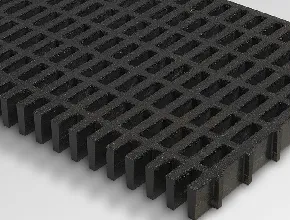loading...
- No. 9, Xingyuan South Street, Dongwaihuan Road, Zaoqiang County, Hengshui, Hebei, China
- admin@zjcomposites.com
- +86 15097380338
- Welcome to visit our website!
Effective Methods for Treating Hard Water in Residential and Commercial Settings
Understanding and Treating Hard Water A Comprehensive Guide
Hard water is a common issue faced by households and industries around the world. Defined by its high mineral content, particularly calcium and magnesium ions, hard water can lead to a variety of challenges that affect not only day-to-day activities but also plumbing systems and appliances. Understanding hard water and its treatment options is essential for maintaining a healthy and efficient household or business environment.
What is Hard Water?
Hard water occurs when water percolates through mineral-rich rocks, accumulating dissolved minerals along the way. The two primary minerals that contribute to water hardness are calcium and magnesium, although other minerals such as iron and manganese may also be present. The hardness of water is typically measured in parts per million (ppm) or grains per gallon (gpg). Water with higher than 60 ppm is generally considered hard, while those above 120 ppm are categorized as very hard.
The effects of hard water can be noticed through various signs, including the formation of scale buildup on faucets and pipes, soap not lathering well, and the dullness of laundry after washing. Notably, the presence of hard water can lead to increased energy costs, as heaters have to work harder to heat the mineral-laden water. Additionally, appliances such as dishwashers and water heaters can suffer from decreased efficiency and longevity due to scale buildup.
Health Implications
While hard water is not considered a health hazard, it can affect the palatability of drinking water and the taste of food prepared with it. Some studies suggest that hard water may have beneficial health effects due to the presence of minerals, but excessive mineral consumption can lead to problems in certain individuals, particularly those with kidney issues.
Treatment Methods
Fortunately, there are several methods available to treat hard water effectively
1. Water Softeners The most common solution for hard water treatment is the installation of a water softener. This system works through a process called ion exchange, where calcium and magnesium ions are replaced with sodium or potassium ions. The result is soft water that is free from the minerals that cause hardness.
hard water treatment

2. Reverse Osmosis This advanced filtration system uses a semi-permeable membrane to remove a wide range of impurities, including dissolved minerals. While it's an effective method for providing clean drinking water, it can be more expensive and is often used in conjunction with other systems for comprehensive water treatment.
3. Descaling Agents These chemical agents can help dissolve existing scale buildup in plumbing and appliances. While they do not prevent hardness, they can aid in maintaining the efficiency of your plumbing system.
4. Magnetic and Electronic Devices Some products claim to mitigate hard water issues through magnetic or electronic fields that alter the behavior of minerals. However, the effectiveness of these systems is debated, and they may not deliver the same results as traditional methods.
5. Physical Filtration Whole-house filters can be utilized to reduce some hardness, though they are typically less effective than water softeners. Regular maintenance and filter replacement are key to their efficiency.
Choosing the Right Solution
When considering hard water treatment, it’s essential to evaluate the severity of your water hardness, budget, and specific needs. Homeowners can easily test their water hardness with kits available at home improvement stores or consult professionals for detailed analysis.
Additionally, it is crucial to consider the implications of sodium or potassium ions introduced by water softeners, especially for those on sodium-restricted diets. In these cases, alternatives such as potassium-based softeners or reverse osmosis systems can be optimal solutions.
Conclusion
Ultimately, treating hard water is about improving the quality of life in your home or business. By understanding the implications of hard water and exploring the various treatment options, individuals can make informed decisions that lead to improved plumbing efficiency, better energy usage, and enhanced overall water quality. Whether through water softening systems, filtration, or chemical agents, effectively managing hard water challenges will lead to a more sustainable and comfortable living environment.
-
The Rise of FRP Profiles: Strong, Lightweight, and Built to LastNewsJul.14,2025
-
SMC Panel Tanks: A Modern Water Storage Solution for All EnvironmentsNewsJul.14,2025
-
GRP Grating: A Modern Solution for Safe and Durable Access SystemsNewsJul.14,2025
-
Galvanized Steel Water Tanks: Durable, Reliable, and Ready for UseNewsJul.14,2025
-
FRP Mini Mesh Grating: The Safer, Smarter Flooring SolutionNewsJul.14,2025
-
Exploring FRP Vessels: Durable Solutions for Modern Fluid HandlingNewsJul.14,2025
-
GRP Structures: The Future of Lightweight, High-Performance EngineeringNewsJun.20,2025
